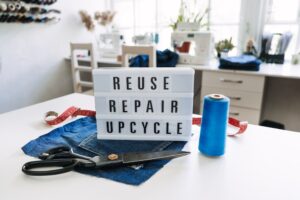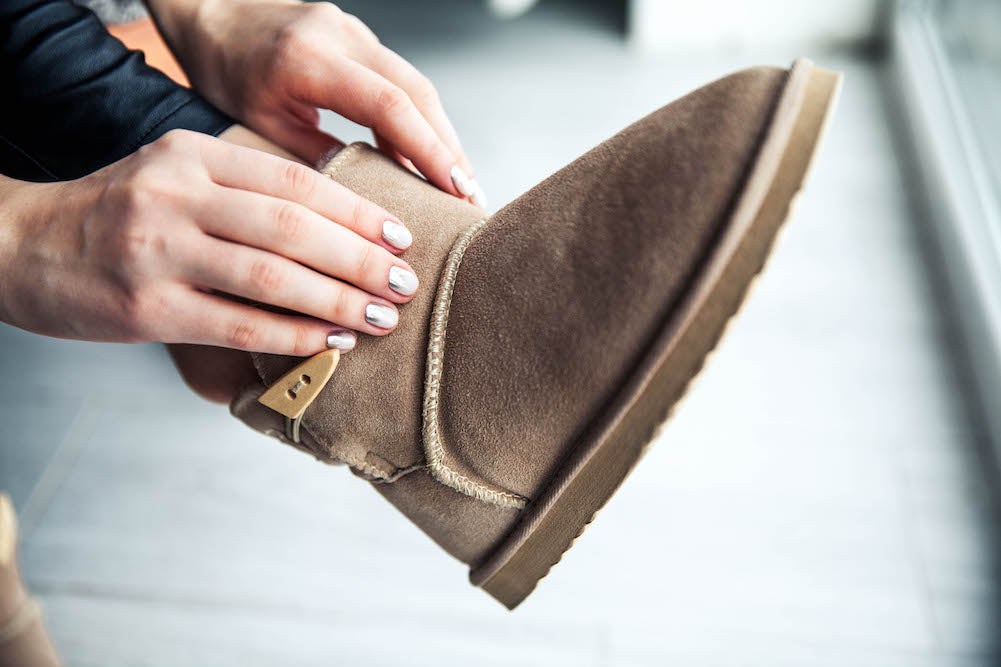UGG is a well-known brand providing customers with high-quality boots and other products for over four decades. However, in recent years, the company has shifted its focus to becoming more ethical and sustainable. This shift in focus is part of UGG’s purpose-driven strategy, which aims to repair, restore, respect, and protect the earth. This blog post will look closer at UGG’s journey toward becoming a more sustainable and ethical brand.
Materials and Supply Chain
UGG recognizes that its materials and supply chain is critical to its journey to corporate sustainability. The company seeks sustainable alternatives for key materials and strives to source materials like leather, cotton, wool, and down from suppliers certified by third-party benchmarking organizations. UGG is also committed to being fully transparent about the materials it uses, and the key to transparency is traceability. The company is working hard to trace 100% of its sheepskin back to the country of origin and the vast majority of all other hides back to the country of origin.
Some of the key materials that UGG uses are UGGpure™, responsible wool, leather from certified tanneries, cruelty-free down, and responsible packaging. UGGpure™ is a proprietary technology that uses re-purposed wool, which reduces the company’s use of virgin wool and emits less CO2 when compared to virgin market wool. UGG has also supported the Textile Exchange’s RESPONSIBLE WOOL KICK START PROGRAM, which aims to bring smaller, family-owned farms into the Responsible Wool Standard initiative.
Leather from certified tanneries is critical to reaching UGG’s UNGC Sustainable Development Goals, and the company strives to source 100% of its leathers from tanneries certified by the Leather Working Group. UGG is also committed to using a limited amount of down in its products and requires all down to be Responsible Down Certified, which ensures that animals have not been subjected to maltreatment like force-feeding or live-plucking.
UGG is also doing its part to reduce the environmental impact of its packaging materials by increasing its use of Forest Stewardship Council (FSC) paper, using less plastic and paper, and setting ambitious but attainable packaging goals.
Innovation
UGG is also innovating to make its products more sustainable. The company is excited to evolve the well-loved boot, the Fluff Momma Sugar Capsule, which features renewable materials like Sorona®, TENCEL™ Lyocell, and Sugarcane EVA. Additionally, UGG has launched its first UGG Classic made with regenerative materials, featuring sheepskin sourced from a farm that practices regenerative principles.
Community
UGG is also committed to strengthening communities and improving mental well-being. The company has chosen to support PFLAG National and Sad Girls Club this winter.
Final Thoughts
UGG’s journey toward becoming a more sustainable and ethical brand is ongoing, but the company has made significant progress in recent years. UGG is committed to repairing, restoring, respecting, and protecting the earth by doing its part. From its materials and supply chain to its innovation and community initiatives, UGG is positively impacting people and the planet.
Related Topic:
Leather Working Group: Promoting Sustainability and Social Responsibility in the Leather Industry
The production of leather has significant environmental and social impacts, particularly in relation to water consumption, energy use, chemical pollution, worker health, and safety, fair wages and working conditions, and human rights. In response to these challenges, the Leather Working Group (LWG) was established in 2005 as a multi-stakeholder initiative to promote sustainable and responsible practices within the leather industry.
In this blog post, we’ll explore how the LWG is working to promote sustainability and social responsibility in the leather industry and why it’s important for consumers and brands alike.
The Environmental Impact of Leather Production
Leather production can have significant environmental impacts. For example, it takes a large amount of water to produce leather, and the chemicals used in tanning can cause water pollution if not properly treated. In addition, the energy used in leather production contributes to greenhouse gas emissions and climate change. To address these issues, the LWG has developed a certification program for tanneries that sets environmental management and performance standards. Tanneries that meet these standards are recognized as LWG-certified, which helps to minimize the industry’s impact on the environment.
The Social Impact of Leather Production
Leather production can also have social impacts. For example, workers in tanneries may be exposed to hazardous chemicals and not be paid fair wages or provided with adequate health and safety protections. In addition, tanneries can have negative impacts on local communities if they don’t engage in responsible business practices. To address these issues, the LWG’s certification program sets standards for labor practices and community engagement. Tanneries that meet these standards are recognized as LWG-certified, which promotes social responsibility within the industry.
Consumer Expectations and the Importance of LWG Certification
Consumers are increasingly concerned about the environmental and social impact of their products and are looking for ways to make more sustainable and socially responsible choices. The LWG’s certification program helps to meet these expectations by providing a way for consumers to identify and choose leather products that have been produced with sustainability and social responsibility in mind. Brands that use LWG-certified leather can demonstrate their commitment to sustainability and social responsibility and meet the expectations of consumers looking for more responsible products.
Brands Using LWG-Certified Leather
Many well-known brands and retailers source leather from tanneries certified by the LWG. For example, Adidas, Dr. Martens, Timberland, Patagonia, Puma, and The North Face all use LWG-certified leather in their products. These brands use LWG certification as part of their sustainability and social responsibility efforts and are helping to drive continuous improvement within the leather industry.
The Future of Sustainability in the Leather Industry
The LWG’s certification program is helping to drive continuous improvement within the leather industry by setting clear standards and benchmarks for environmental and social responsibility. The program is regularly updated to reflect changes in industry best practices and evolving environmental and social challenges. Sustainability and social responsibility will likely become increasingly important considerations for consumers and brands alike. The LWG’s certification program will continue to play a key role in promoting responsible practices within the leather industry.
Final Thoughts
The Leather Working Group’s certification program is an important initiative in promoting sustainability and social responsibility within the leather industry. The program helps to set standards and benchmarks for environmental and social responsibility. It provides a way for brands and retailers to identify and source leather products that have been produced in a more sustainable and socially responsible manner.
By sourcing leather from LWG-certified tanneries, brands, and retailers can demonstrate their commitment to sustainability and social responsibility and meet the expectations of consumers increasingly concerned about the environmental and social impact of the products they buy. Moreover, the LWG’s certification program helps drive continuous improvement within the leather industry by encouraging tanneries to improve their operations and business practices to meet the LWG’s standards.









Reader Interactions